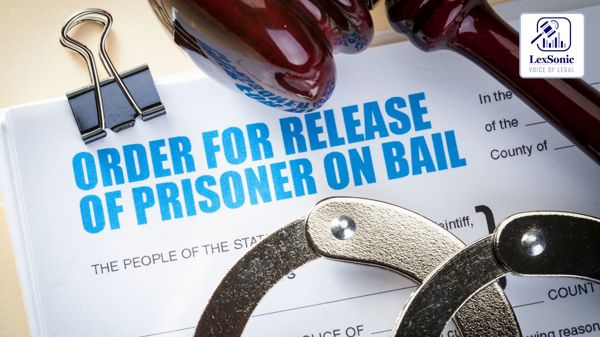Bombay High Court Grants Bail: A Closer Look at the NIA Case and Its Implications.
25 July 2024
Bail and Antcipatory Bail >> Criminal Law | Criminal Appeals & Suspension of Sentence >> Criminal Law
In a recent legal development of Rizwan Ibrahim Momin v/s The State of Maharashtra, (At the instance of Kalachowki ATS), Mumbai, the Bombay High Court granted bail to an appellant involved in a case linked to the National Investigation Agency (NIA) under the Unlawful Activities (Prevention) Act (UAPA). The case highlights various legal arguments surrounding the appellant's role and the evidence presented against him.
Background:
The appellant, a teacher and social worker, sought to quash an earlier decision made by the Special Judge under MCOCA, TADA, POTA & NIA, which had denied his bail application on April 19, 2023. The appellant was implicated in C.R. No. 18 of 2021, which involved serious allegations under the UAPA and the Indian Penal Code, including charges of harboring an accused involved in terrorist activities.

Arguments for Bail:
Parity with Co-AccusedThe appellant's counsel, Mr. Solkar, argued for bail based on the principle of parity, noting that a co-accused, Mohammed Irfan Rehmatali Shaikh, had been granted bail on August 29, 2023. Mr. Solkar contended that the appellant had no prior criminal record and was merely helping an acquaintance, Zakir Husain, who had sought refuge during a time of distress.
Context of the Relationship:
Mr. Solkar emphasized that the appellant had met Zakir during the COVID-19 lockdown while distributing food packages. On September 15-16, 2021, Zakir stayed at the appellant's home for one night, requesting assistance due to threats from individuals demanding money he owed. The appellant's decision to allow Zakir to stay and destroy his phone at Zakir’s request was portrayed as an act of goodwill rather than complicity in criminal activities.
Lack of Incriminating Evidence:
The defense argued that the evidence against the appellant was circumstantial and not enough to establish a prima facie case. For instance, the recovered documents belonging to Zakir, found hidden in the appellant's house, were deemed not incriminating, as there was no indication the appellant was aware of their presence. Additionally, the call detail records (CDRs) merely reflected communication with Zakir during a time when he was providing services to the appellant.
Prosecution's Opposition:
The prosecution, represented by Mr. Saste, opposed the bail application, citing several factors that allegedly linked the appellant to the offenses. These included the overnight stay of Zakir at the appellant's residence, the destruction of Zakir’s phone, and the discovery of five unused SIM cards in the appellant's possession. Despite these claims, the prosecution conceded that the appellant had no previous criminal background.
Court's Findings:
After reviewing the case, the High Court noted that the accusations against the appellant did not constitute sufficient grounds for denying bail. The court highlighted that:
Lack of Direct Involvement: There was no evidence showing that the appellant was aware of Zakir's alleged terrorist activities or that he participated in them.
Similarity to Co-Accused: The appellant’s circumstances were akin to those of the co-accused who had been granted bail, reinforcing the argument for parity.
Duration of Custody: The appellant had been in custody for nearly three years, with no trial commenced or charges framed.
Conclusion:
The Bombay High Court ultimately granted bail to the appellant, emphasizing that the conditions imposed should ensure compliance while awaiting trial. The court mandated regular reporting to the NIA, cooperation with the investigation, and restrictions on travel, among other stipulations. This decision underscores the court's stance on the necessity of clear and compelling evidence when evaluating bail applications, especially in cases involving serious charges under the UAPA. The ruling serves as a reminder that the presumption of innocence remains a critical tenet of justice, especially when the prosecution's evidence is circumstantial and lacks direct implications of criminal intent.
National Investigation Agency Act, 2008 Indian Evidence Act, 1872 Unlawful Activities (Prevention) Act, 1967
